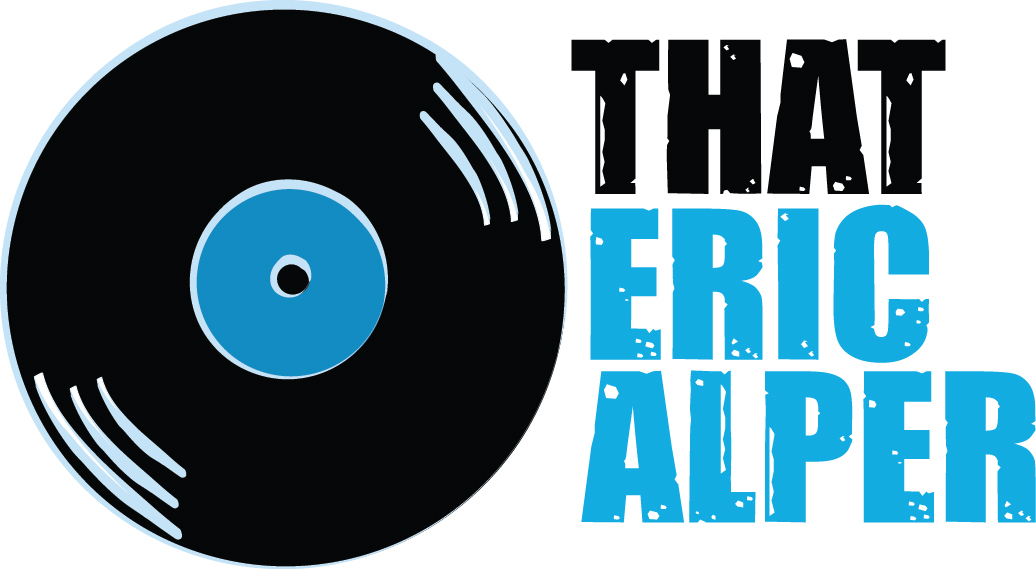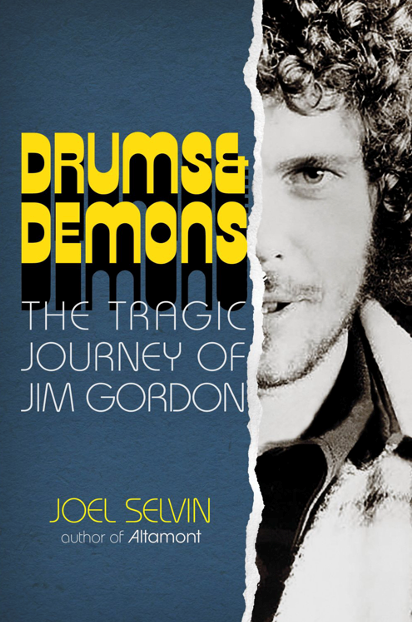Just about a month ago it was announced that Drums & Demons: The Tragic Journey of Jim Gordon by Joel Selvin would be published by Diversion Books on February 27. In the weeks that followed, a number of advance reading copies of the book found their way to some notable recipients who had expressed interest in reading it. As the countdown to February 27 continues we share some of their comments.
Mark Lindsay, frontperson for Paul Revere & the Raiders and host of Mark Lindsay’s American Revolution heard on SiriusXM’s Little Steven’s Underground Garage channel wrote, “Jim was always soft-spoken, and the first one to arrive at a session. His drums spoke for him, and he had a subtle but commanding presence. Years later, when he was scheduled for a session where I was producing a commercial, he arrived 45 minutes late, was surly, and uninvolved. Someone else had taken over the Jim we knew and loved, and that was the last time I saw him. Based upon my interactions with Jim Gordon, author Joel Selvin accurately portrays Jim’s genius as well as his devolvement into the living hell he gradually occupied.”
Amir “Questlove” Thompson offered, “Jim Gordon is one of the most important drummers in American rock history — he kept the beat for everyone from Buffalo Springfield to the Beach Boys to Jackson Browne to John Denver to Randy Newman. He is also a tragic figure, a man whose mental illness and substance abuse sent him spiraling into tragedy. Joel Selvin’s biography, both painstaking and painful, brings Gordon’s darkness into the light.”
The Grateful Dead’s Mickey Hart commented, “Jim was one of the rare players who danced on the edge and knew the secrets. When you play with rhythms like hot coals, they will burn you. Deep drumming is different than just playing drums. Yes, Jim was healing himself when he drummed but when he stopped the voices started again no doubt. Drums can talk to you in voices known and unknown. I finished this book and stared slack-jawed out at space trying to come to grips with this amazing, tragic story.”
Pete Thomas, drummer for Elvis Costello & the Attractions, who was inducted into the Rock and Roll Hall of Fame with his bandmates, wrote, “Joel’s book is a fascinating, well-written period piece describing the L.A. session scene in the ‘70s. When you play the drums ‘Jim Gordon’ is a place you can go. Like Charlie, Levon or Ringo, he invented his own style of playing rock. Up on the beat but then laying it back just a hair for the second verse. He made records sound both attractive and beautiful. He made hits!! Most drummers have gone a bit off the rails at some point in their careers but sadly things went very wrong for Jim. Joel describes this aspect of Jim’s life in a very thoughtful and sympathetic way.”
Producer/arranger/solo artist Van Dyke Parks notes that Jim Gordon played on his very first Warner Bros. single back in 1967 and commented, “Joel Selvin maintains a vise-like grip on decades of the music biz of the Counter-Culture that brings background musicians to the front-page, above the fold. Drums & Demons covers Gordon’s ascent as first-call studio musician status—to his tragic incarceration at Vacaville, from his delusional downfall into a psychotic, murderous collapse. I loved Jim like a brother, and am grateful for Selvin’s unstinting notice of Gordon’s luminescence. That adds great leavening to this heartbreaking work of staggering genius.”
Selvin’s riveting narrative follows the man who many consider the greatest rock drummer of all time, from his humble beginnings as a teenage touring musician, to his many landmark accomplishments in the studio and on the road, through his downward spiral into mental illness, matricide and incarceration. With the cooperation of the late rock legend’s family, and based on his trademark extensive, detailed research, Selvin uncovers one of the darkest stories in popular music, further cementing his reputation as a master of rock noir.
The subject of Joel Selvin’s latest book was raised in the San Fernando Valley of Los Angeles and got his start as a professional drummer touring with the Everly Brothers in the mid-1960s. Jim Gordon’s penchant for creative and astonishingly accurate musicianship earned him regular session work, joining the community retroactively referred to as The Wrecking Crew. His preternatural intuition and perfect sense of time can be heard on more than 30 Top 10 singles including several #1 hits, such as the Beach Boys’ “Good Vibrations,” Carly Simon’s “You’re So Vain” and “I Got You Babe” by Sonny & Cher (he also supplied the literal beat for “The Beat Goes On” by the latter). He has been immortalized on albums by George Harrison, John Lennon and the Byrds, among dozens of other household name music acts. Gordon was notably the drummer for Derek and the Dominos and provided the piano coda for their evergreen anthem “Layla.” Joel Selvin details how Gordon didn’t merely keep time, but he was also instrumental in shaping compositions; whether it was his Latin-influenced rhythms on “Rikki Don’t Lose That Number” by Steely Dan or his monumental drum break on the Incredible Bongo Band’s “Apache” (a staple of hip-hop from the genre’s inception, having been sampled on over 750 other records), he wasn’t just a player on hits, he made them hits.


